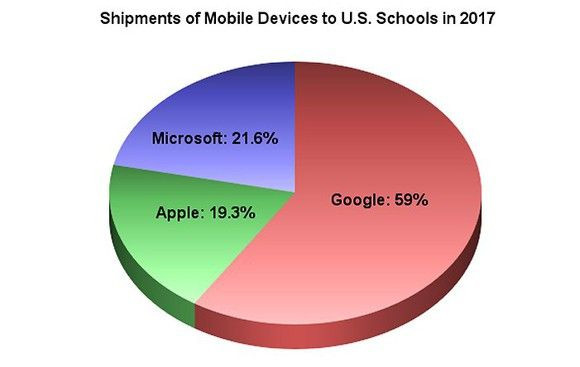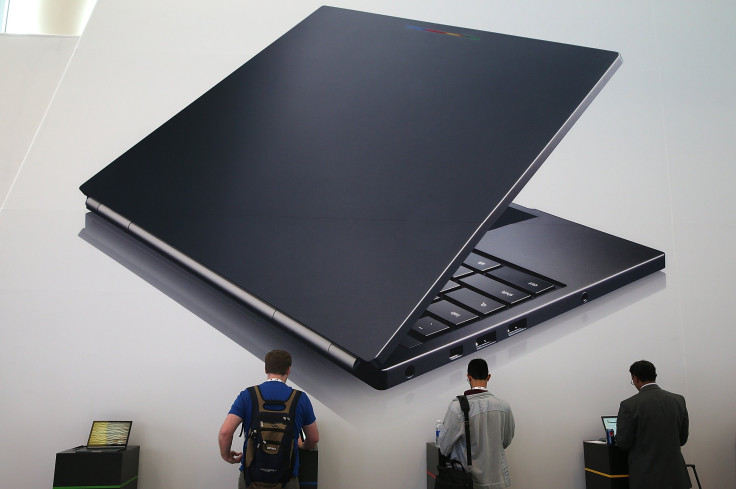Chromebooks Dominate US Schools

This article originally appeared in the Motley Fool.
Back in 2012, Apple (NASDAQ:AAPL) accounted for 52.2% of all mobile device shipments to U.S. K-12 schools, according to Futuresource Consulting. Microsoft came in second, with a 42.6% share, while Alphabet's (NASDAQ:GOOG) (NASDAQ:GOOGL) Google took the remaining 5.2%.
However, Google overtook both tech giants in 2014, and accounted for 59% of all mobile device shipments to schools last year. That incredible result was fueled by the rise of Chromebooks.
Google introduced Chromebooks as low-cost alternatives to Windows laptops, Macbooks, and iPads in 2011. The devices run Google's Chrome OS, a free Linux-based operating system that is tethered to the company's cloud services.
Schools embraced Chromebooks because they were cheap and easy to administer. Google's cloud services simplified many tasks, like turning in homework and tracking grades, and allowed teachers to collaborate on projects. Consistent software updates from Google also reduced maintenance costs.
Apple could struggle to win this market back from Google. The Mac maker recently unveiled a cheaper iPad squarely aimed at the education market, but the price tag wasn't very competitive.
Suzanne Frey, an executive at Alphabet, is a member of The Motley Fool's board of directors. Teresa Kersten is an employee of LinkedIn and is a member of The Motley Fool's board of directors. LinkedIn is owned by Microsoft. Leo Sun owns shares of Apple. The Motley Fool owns shares of and recommends Alphabet (A shares), Alphabet (C shares), and Apple. The Motley Fool has the following options: long January 2020 $150 calls on Apple and short January 2020 $155 calls on Apple. The Motley Fool has a disclosure policy.




















